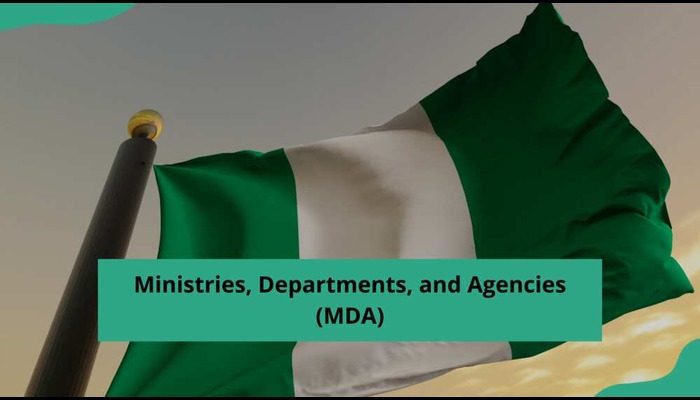
A new report has delivered a damning verdict on the state of transparency in Nigeria’s public sector, showing that only six out of 517 Ministries, Departments and Agencies (MDAs) met the minimum benchmark for accountability in 2025. The shocking figure leaves 511 agencies nearly 99 percent stuck in what the report describes as the “red zone,” where lack of transparency, poor integrity measures, and weak compliance systems dominate.
The findings, contained in the 2025 Transparency and Integrity Index (TII), paint a bleak picture of governance and raise fresh questions about how public institutions handle taxpayers’ money, implement projects, and interact with citizens. For ordinary Nigerians, the figures are more than just statistics. They point to a broken system that directly affects livelihoods, service delivery, and public trust.
“I am not surprised at all,” Maryam Yusuf, a secondary school teacher in Kaduna who has struggled for over a year to get her pension processed told Daily Trust. “When you go to these offices, it feels like you’re begging for what belongs to you. Files disappear, people hint at bribes, and there’s no one to hold accountable. This report only confirms what Nigerians already know.”
Read also: FG projects over ₦18bn annual savings on MDAs’ airfare spending
Her story mirrors the frustrations of millions who encounter inefficiency and corruption in everyday dealings with government agencies from passport applications and driver’s licenses to healthcare and education services. The 2025 TII ranked MDAs on key indicators such as transparency in budgeting, adherence to ethical codes, disclosure of information, implementation of anti-corruption policies, and public accessibility of data. Out of 517 agencies assessed, only six crossed the minimum benchmark required to be considered “transparent and accountable.” The remaining 511 were classified in the “red zone,” a category that highlights severe gaps in integrity practices. Experts say this is not just a governance issue but also a drain on Nigeria’s economic potential.
“An institution in the red zone is one that cannot give citizens confidence about how resources are managed,” explained Michael Daramola, a governance analyst based in Abuja. “When you have 99 percent of agencies in this state, it means wastage, corruption, and inefficiency are almost systemic. The effect is poor service delivery, stalled development projects, and public distrust.”
The timing of the report is particularly striking. Nigeria is facing rising unemployment, mounting debt, and growing pressure to deliver on basic services such as healthcare, education, and security. Yet, public institutions remain bogged down by opacity. Citizens in rural communities often lament abandoned projects. A farmer in Ogun State, James Olaleye, recalled how his community was promised irrigation support under a federal program launched three years ago. “They came, took pictures, made announcements, but nothing followed,” he said. “We never knew what happened to the funds. Reports like this show why projects vanish and the system itself hides the truth.”
The poor performance of MDAs also feeds into the broader problem of declining trust between citizens and the government. According to surveys, fewer Nigerians believe that government institutions work in their interest. Transparency experts warn that this growing distrust could weaken democracy. “When citizens cannot access information or demand accountability, the gap between the government and the governed widens,” said Prof. Amaka Nwosu, a political scientist. “This report underscores that reforms are not optional, they are urgent.”
Read also: NEITI outlines strategic roles for MDAs in driving Nigeria’s energy transition
The six agencies that managed to scale the benchmark were not named in the initial summary, but analysts note that these institutions tend to have stronger leadership commitment to transparency, greater use of technology, and external pressure from civil society. Their performance shows that improvement is possible if deliberate steps are taken. Civil society groups have been quick to highlight this. “We cannot just dwell on the failure of the 511,” said Hassan Bello, director of a Lagos-based accountability NGO. “The success of the six agencies should be studied and replicated. It means transparency is not impossible in Nigeria. It only requires willpower and systems that are open to scrutiny.”
The TII recommends reforms such as digitizing service delivery, enforcing compliance with existing transparency laws, strengthening whistleblower protections, and making budget and procurement information easily accessible to the public. For citizens, however, the call is simple: they want institutions that work. “We don’t want to read about billions allocated every year while hospitals have no drugs and schools have no chairs,” said Yusuf, the teacher. “Let government agencies be open. Let them show us where the money goes.”
Observers say that unless urgent action is taken, the cycle of corruption and inefficiency will continue. Beyond publishing reports, they argue, there must be consequences for agencies that consistently fail to meet standards. “Transparency is not a luxury; it is the foundation of development,” said . Daramola. “If Nigeria wants to reduce poverty, attract investment, and rebuild public trust, then integrity in MDAs must become non-negotiable.”





